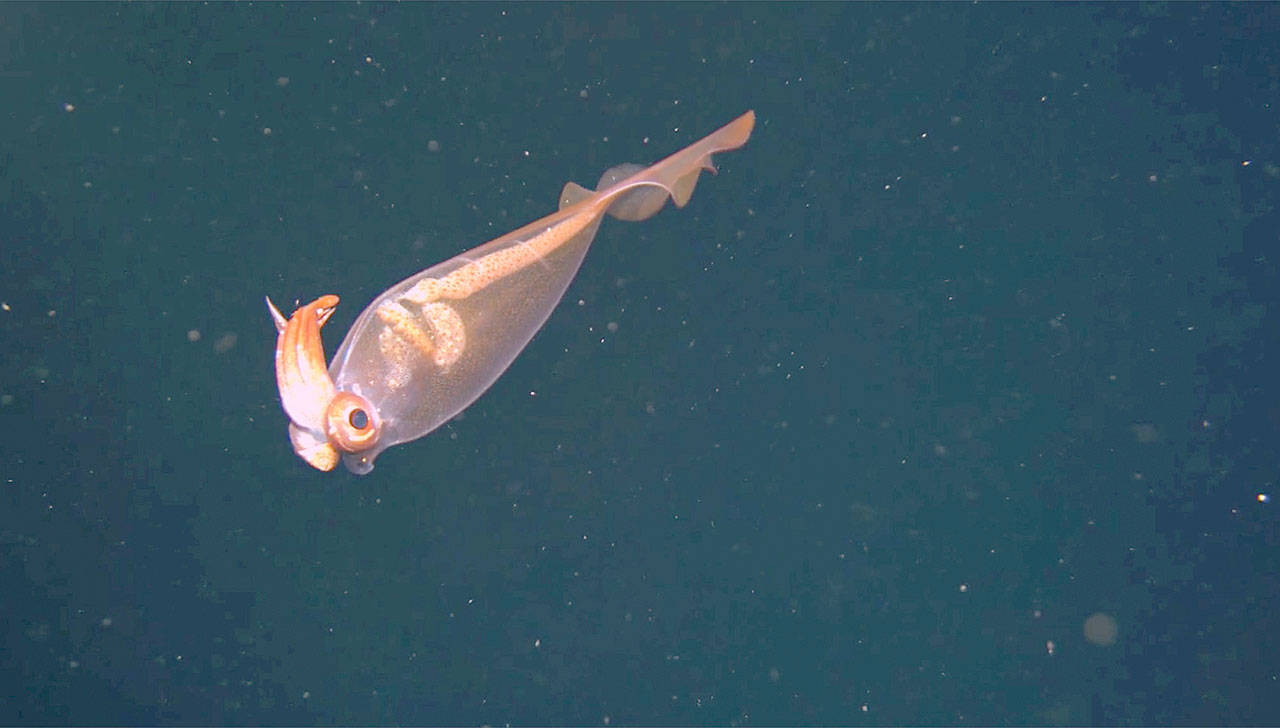By Mark Price
The Charlotte Observer
A team of ocean explorers captured images last week of a surreal transparent squid with glowing internal organs in the Gulf of Alaska, as part of a study backed by the National Oceanic and Atmospheric Administration.
In the brief video posted on Facebook, the camouflaged squid’s skin is completely invisible, allowing all its luminescent entrails to be seen.
“It’s a cockatoo squid!” NOAA said in the post. “Pretty, huh?”
The footage, which has been viewed thousands of times in the past week, was taken with a remotely operated vehicle at a depth of 1,729 feet “along the Gulf of Alaska continental slope,” which is the northern-most portion of the North Pacific, NOAA says.
Explorers were in the region to find out more about how climate change has impacted the deepest areas of the Gulf of Alaska, which has “numerous channels, deep water canyons, and seamount chains,” NOAA says.
The cockatoo squid, also known as the glass squid, is “often transparent except for the eyes and the visceral nucleus,” notes Tree of Life. Some species of the squids can grow to more than 9 feet in length, according to Our Breathing Planet.
“When disturbed, this squid hyperinflates the mantle with water and releases ink inside the mantle cavity. It thereby transforms itself from a nearly transparent squid into a very dark one,” says Tree of Life.
Scientists say the Gulf of Alaska’s “ecological health has been compromised by recent anomalous warming in the North Pacific since 2014 and has already shown ecosystem-wide responses from phytoplankton, the small microalgae supporting the base of the food web, to the largest whales,” says the mission report.



